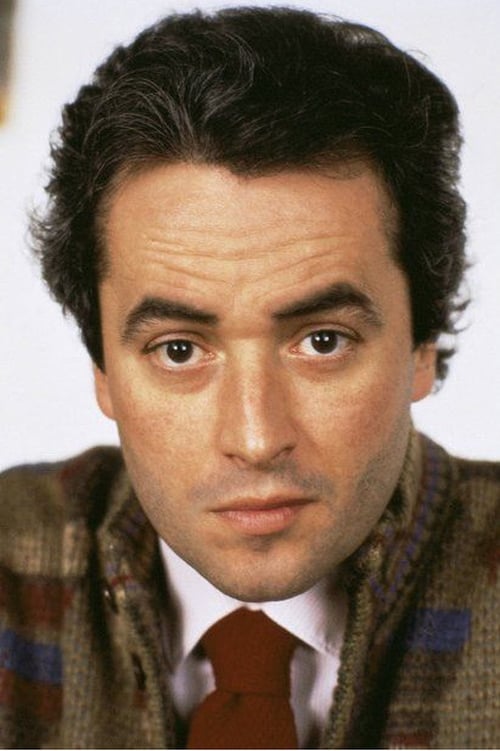
José Carreras
출생 : 1946-12-05, Barcelona, Cataluña, Spain
약력
Josep Maria Carreras Coll (Catalan: [ʒuˈzɛb məˈɾi.ə kəˈreɾəs ˈkɔʎ]; born 5 December 1946), better known as José Carreras (/kəˈrɛərəs/, Spanish: [xoˈse kaˈreɾas]), is a Spanish operatic tenor who is particularly known for his performances in the operas of Donizetti, Verdi and Puccini.
Born in Barcelona, he made his debut on the operatic stage at 11 as Trujamán in Manuel de Falla's El retablo de Maese Pedro, and went on to a career that encompassed over 60 roles, performing in the world's leading opera houses and on numerous recordings. He gained fame with a wider audience as one of the Three Tenors, with Plácido Domingo and Luciano Pavarotti, in a series of large concerts from 1990 to 2003. He is also known for his humanitarian work as president of the José Carreras International Leukaemia Foundation (La Fundació Internacional Josep Carreras per a la Lluita contra la Leucèmia), which he established following his own recovery from the disease in 1988.
Carreras was born in Sants, a working-class district in Barcelona. He was the youngest of Antònia Coll i Saigi and Josep Carreras i Soler's three children. In 1951, his family emigrated to Argentina in search of a better life. However, this move abroad proved unsuccessful, and within a year they had returned to Sants where Carreras was to spend the rest of his childhood and teenage years.
He showed an early talent for music and particularly singing, which intensified at the age of six when he saw Mario Lanza in The Great Caruso. The story recounted in his autobiography and numerous interviews is that after seeing the film, Carreras sang the arias incessantly to his family, especially "La donna è mobile", often locking himself in the family's bathroom when they became exasperated with his impromptu concerts. At that point, his parents, with the encouragement of his grandfather Salvador Coll, an amateur baritone, found the money for music lessons for him. At first he studied piano and voice with Magda Prunera, the mother of one of his childhood friends, and at the age of eight, he also started taking music lessons at Barcelona's Municipal Conservatory.
At just eight years old, he also gave his first public performance, singing "La donna è mobile", accompanied by Magda Prunera on the piano, on Spanish National Radio. A recording of this still exists and can be heard on the video biography, José Carreras – A Life Story. On 3 January 1958, at the age of eleven, he made his debut in Barcelona's great opera house, the Gran Teatre del Liceu, singing the boy soprano role of Trujamán in Manuel de Falla's El retablo de Maese Pedro. A few months later, he sang for the last time as a boy soprano at the Liceu in the second act of La Bohème.
Throughout his teenage years, he continued to study music, moving on to the Conservatori Superior de Música del Liceu and taking private voice lessons, first with Francisco Puig and later with Juan Ruax, whom Carreras has described as his "artistic father". Following the advice of his father and brother, who felt that he needed a "backup" career, he also entered the University of Barcelona to study chemistry, but after two years he left the university to concentrate on singing. ...
Source: Article "José Carreras" from Wikipedia in English, licensed under CC-BY-SA 3.0.
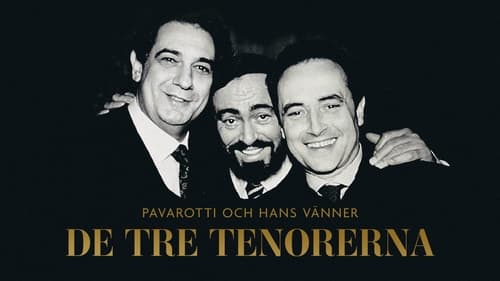
Himself
Billions watched as Luciano Pavarotti, Placido Domingo and José Carreras performed for the first time as The Three Tenors 30 years ago. This is their story.
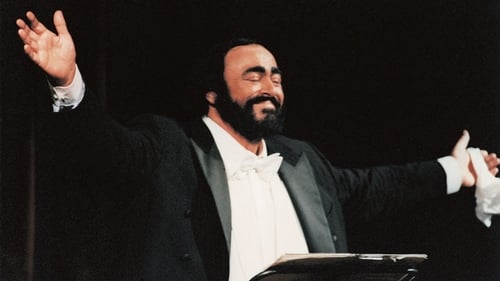
Self
역사상 최초 클래식으로 음악 차트를 올킬하며 전 세계 최고의 슈퍼스타로 우뚝 섰던 테너 ‘루치아노 파바로티’의 삶을 담은 영화

Andrea Chénier

Self (archive footage)
The Three Tenors began their collaboration with a performance at the ancient Baths of Caracalla in Rome, the eve of the 1990 FIFA World Cup Final. Following the big success of the 1990/1994 concerts, The Three Tenors opened a world tour of 31 concerts, the last one in 2003. Seven of these 31 concerts had been recorded for TV but disappeared somewhere in London. All attempts to bring back these invaluable recordings to the audience failed. Now, after all these years, C Major in cooperation with Three Tenors Ltd. managed to assemble the most beautiful moments of six lost concerts in Munich, Tokyo, London, Vienna, New York and Pretoria.


Himself
The Three Tenors capture the joy and spirit of the season with their first ever Christmas concert, live from Vienna, featuring performances of international seasonal favorites by the best-selling and world-renowned trio. Enjoy the gifts of The Three Tenors and be part of the holiday event of the year.

Self
The Three Tenors: Paris 1998 (re-released with the subtitle The Concert of the Century) is a live album by José Carreras, Plácido Domingo, and Luciano Pavarotti with conductor James Levine. The album was recorded at a Three Tenors concert on 10 July 1998 during celebrations for the FIFA World Cup. The concert took place in front of the Eiffel Tower on the Champ de Mars in Paris, France. The Orchestre de Paris accompanied the singers. The audience at the live concert numbered around 150,000 people.[2] A sound system and large screens were placed along the Champ de Mars for the crowds further back to see and hear the performance.[2] Producer Tibor Rudas claimed prior to the concert that 2 billion viewers were expected to watch the televised performance worldwide.[3]

Stiffelio
Stiffelio is considered "early Verdi" to musiclogists who classify things, but, in reality, it is a final transition between the maestro's earlier (but most enjoyable) works, and the mature craftsmanship of Rigoletto. Preceded by Luisa Miller (q.v.), there is more dramatic intensity and story line than in the earlier works. The plot centers around Stiffelio, a minister, who discovers that his wife, Mina, has been unfaithful.

Self
Christmas in Vienna is a 1993 concert by American soul singer Diana Ross, and Spanish tenors Plácido Domingo and José Carreras for the Sony Classical label.

Singer
Tony Randall and some children, filmed in Connecticut, provide the framework of the history of some of the carols sung by opera stars.

Tracks include "The Phantom Of The Opera," "The Music Of The Night," "All I Ask Of You," "Tell Me On A Sunday," "Pie Jesu," "Amigos Para Siempre," "Love Changes Everything," "Wishing You Were Somehow Here Again," "Oh, What A Circus," "Any Dream Will Do," "Close Every Door," "The First Man You Remember," "Anything But Lonely" and "Joseph Mega-Remix."
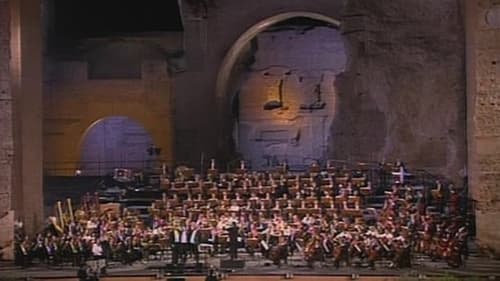
The Three Tenors is a name given to the Spanish singers Plácido Domingo and José Carreras and the Italian singer Luciano Pavarotti who sang in concert under this banner during the 1990s and early 2000s. This is the first collaboration of the trio, with a performance at the ancient Baths of Caracalla, in Rome, Italy, on July 7, 1990 – the eve of the 1990 FIFA World Cup Final. Zubin Mehta conducted the orchestra of Maggio Musicale Fiorentino and the orchestra of Teatro dell'Opera di Roma.
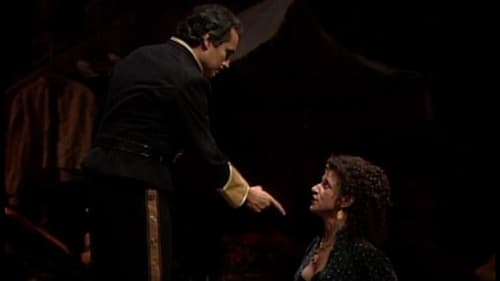
Don José
This all-star cast is framed by Peter Hall’s gritty, realistic production and conducted by James Levine, who brings out all the surging emotion and gripping drama in Bizet’s score. At the center of the story is Agnes Baltsa, whose smoky mezzo is tailor-made for the gypsy Carmen, an independent woman who glories in obeying only her own rules, but who is haunted by fate. Superstar tenor José Carreras is Don José, the solider from a small town who catches Carmen’s eye and is destroyed by his growing obsession with her. Samuel Ramey is the charismatic matador Escamillo, who lures Carmen away from Don José with tragic result. Leona Mitchell is Micaëla, the simple girl from Don José’s hometown who cannot save him. March 21, 1987 Matinee Broadcast.

Rodolfo(singing voice)
The film tells the story of a love affair between a poor poet and an equally poor seamstress in 19th century Paris.

Enrico Caruso
A fun journey through the history of the automobile, this film is about a group of future computer hackers that wire an arcade game to work as a time machine. Among appearances in the movie are Henry Ford, Mercedes Benz, and modern race car driver Niki Lauda, as one of the boys becomes trapped within the newly created game. (IMDb)

Julián Gayarre
Biography of Julian Gayarre (1844-1890), one of the best tenors of all times. At 19, a professor at the Conservatory of Music in Madrid heard him singing for the first time and offered him a scholarship to continue his studies. His artistic life runs between continued success, becoming the world's greatest tenor. But in 1890, while singing at the Teatro Real in Madrid, a failure in his voice is like a cruel reminder of what would happen a few days later: his death at a young age. The doctors gave a diagnosis, but his friends know that Julian Gayarre died because he could not sing anymore.

Don Carlo
A live performance of Giuseppe Verdi's opera.

Andrea Chénier
Live from La Scala Saturday 06 July 1985

Tony
A documentary which shows, in great detail, the making of the 1985 Bernstein-conducted recording of the entire score of "West Side Story", featuring operatic stars.

Joan
A retelling of the story of John the Baptist, Salome, Herod Antipas and Herodias, but strikingly less psychological and bloody than Richard Strauss's opera "Salome".

Set during the Crusades, the story of Lombardi opens with the rivalry of two brothers -- Arvino and Pagano -- who vie with one another for the love of Viclinda. Pagano attempts to kidnap Viclinda and commit a fratricide, extinguishing Arvino, but succeeds only in murdering his father in error; circumstances force him into exile in the Holy Land. Thus begins a complex and harrowing series of events that will ultimately lead to the reconciliation of both men, followed by the death of one.

Self - Tenor
This installment in the "Karajan Legacy" series captures the acclaimed conductor leading the Vienna Philharmonic Orchestra with the Vienna State Opera Chorus and the Sofia National Opera in a masterful performance of Verdi's "Requiem." Filmed in 1984, the concert features an array of renowned soloists, including tenor José Carreras, soprano Anna Tomowa-Sintow, bass-baritone José van Dam, bass Kurt Moll and mezzo-soprano Agnes Baltsa.

Himself
In celebration of its 100th anniversary in 1983, the Metropolitan Opera hosts a four-hour performance uniting some of the world's most spellbinding opera singers and conductors. The event includes a ballet from Samson et Dalila and boasts incredible classical performances from Kathleen Battle, Plácido Domingo, Jose Carerras, Leonard Bernstein, Marilyn Horne, Leona Mitchell, Luciano Pavarotti and many more.

Tenor
Live performance of Verdi's Missa da Requiem at the Edinburgh Festival in 1982. An all-star quartet of soloists under the baton of Claudio Abbado, recorded in high definition audio.

Rodolfo
"La Bohème" is one of Giacomo Puccini's most popular and timeless works and the second-most performed opera at New York's Metropolitan Opera. This production, directed by the legendary Franco Zeffirelli, features José Carreras, Teresa Stratas, Renata Scotto and Richard Stilwell. The opera is replete with extraordinary visual beauty as it presents the tragic story of young bohemians struggling to make it in the world.

Alfredo Germont
Few singers have plumbed the depths of the role of Violetta as did she incomparable soprano Renata Scotto. Her interpretation surprises with fresh insights at every turn, illuminating aspects of the character that are latent in the libretto and the schore but rarely dramatized with such completeness. For example, when Germont meets Violetta, he is immediately struck by her strong bearing ( Quai modi! , he exclaims in an aside).

Music
An environmental film shot in the Blue Mountains.

Famed tenor José Carreras takes the stage at Moscow's Bolshoi Theatre with soprano and fellow Spaniard Montserrat Caballé in this memorable evening of music filmed live in 1989. Selections include ballads, arias and duets by some of the world's most famous composers, including Giacomo Puccini, Giuseppe Verdi, Gioacchino Rossini, Antonio Vivaldi, Vincenzo Bellini, Alessandro Scarlatti and Alessandro Stradella.










